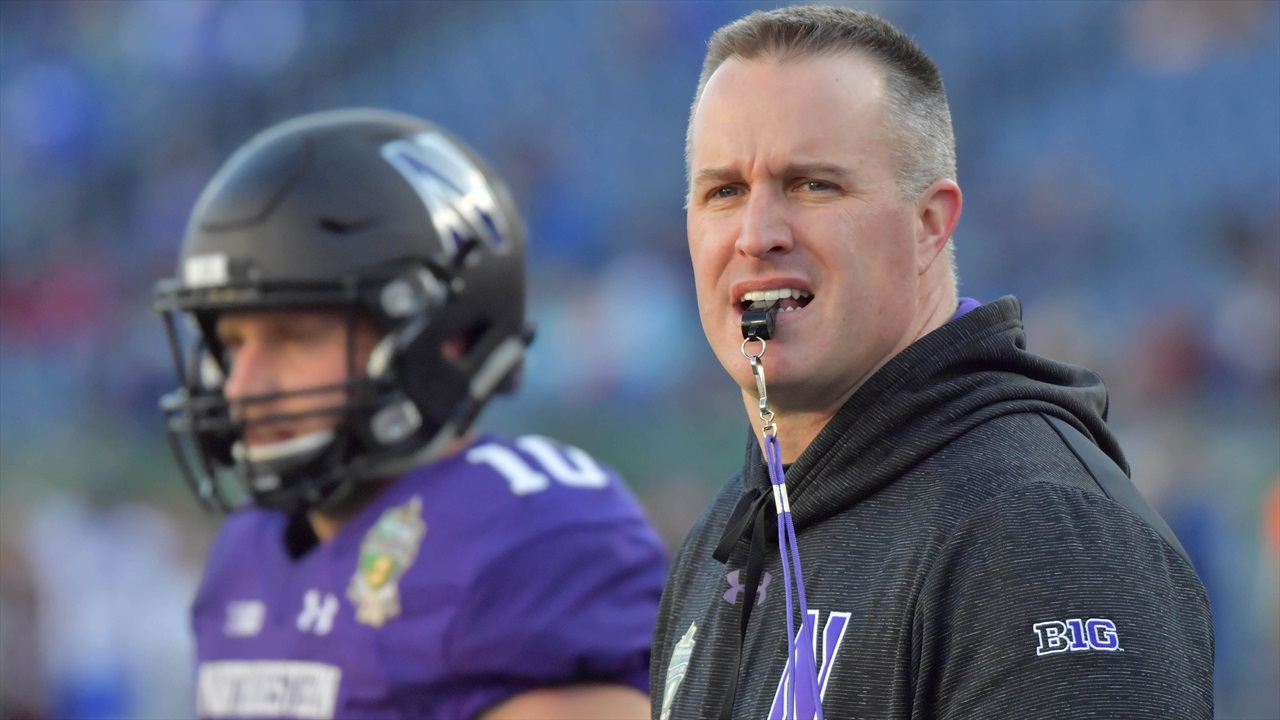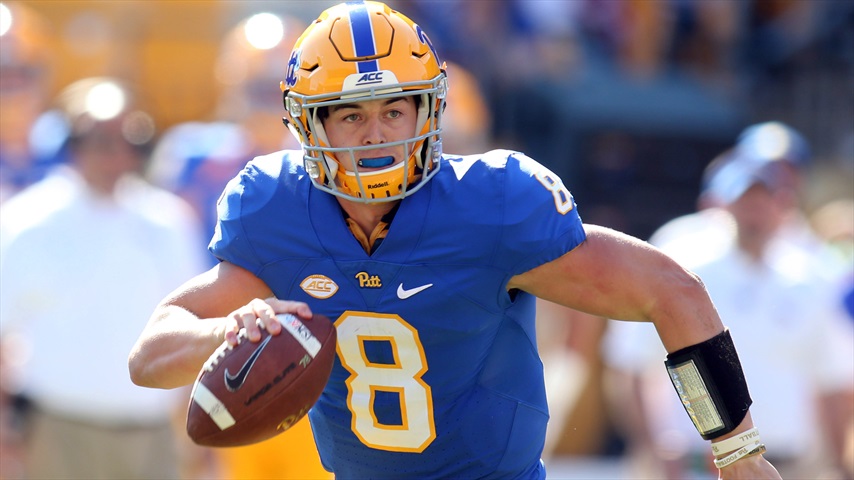
Coaches Ready For Redshirt Revision
Getting a majority of college football coaches to agree on anything is difficult, especially given the vast differences between programs across the country, but the new redshirt rule seems to have universal appeal, at least among the coaches Notre Dame will be facing in 2018.
The new rule, which goes into effect this year, allows players to appear in up to four games in a season while still preserving a year of eligibility.
“I'm fired up about that rule,” Northwestern head coach Pat Fitzgerald said recently. “I think there's a lot of coaches in the country excited about it.”
USC head coach Clay Helton loves the change.
“I absolutely love it,” he said. “I think it's great for our game.
“I think it's a tremendous rule. I know a lot of coaches that I've talked to are really excited about it, to have the ability to have that luxury, not only from a safety standpoint, but from a development standpoint.”
Syracuse head coach Dino Babers echoed that sentiment.
“I think it's a fantastic rule,” said Babers. “I really do. And I think it's something that we needed in college football based off of the injuries that we've been having later on in the season and the type of people that we've been putting out on the football field.”
“I think it's a great rule for all of our players,” Stanford head coach David Shaw added.
Wake Forest head coach Dave Clawson said he’s “excited about it” and think it will benefit his program especially.
Shaw doesn’t believe the change will favor any particular program over another.
“I think it affects us all the same,” he said. “I'm really excited about this new rule and what it can do for young people. This is not just for my benefit and the coaches' benefit, this is for the benefit of the young people.”
But Clawson is confident his program is especially positioned to use it to its advantage.
“I think for Wake Forest, it's great,” Clawson said. “I think that rule helps Wake Forest as much as any program in the country because the way that we run the program is we've probably redshirted a half to three-quarters of our freshmen every year, and the nature of the school, being private, very academic, it's hard to get guys in.”
Clawson added that Demon Deacons don’t get a ton of walk-ons.
“If we redshirt, let's say, 15 players or 18 players, and now all of a sudden all those guys get four games that they haven't got before, to me that's 60 to 80 more player games that we get. And I just think it helps keep the freshmen engaged.”
Clawson even hinted at a sort of secret plan to maximize the rule.
“We have a plan and a strategy of how we're going to deal with it and how we're going to work it, and we've thought a lot about it and researched it and talked to people and we've talked as a staff,” he said. “I'm not going to share what that philosophy is, but I think this will really help us.
“This is probably the most depth that we've had in my five years at Wake. And then on top of that you have this new redshirt rule that those 15 to 20 guys that we typically would redshirt that you now have available for four games, I think it'll help us on special teams. It'll help us in our different personnel packages.”
As a former All-American linebacker, Fitzgerald is able to look back to his own experience playing as a true freshman for the Wildcats to understand how less can be more.
“I was one of those really below-average guys that played as a true freshman,” he acknowledged. “I was the best of the worst and it was not a very good experience for our defense when I was out there. I would have been a lot better if I only played in four games, I promise you that.”
Fitzgerald and others noted how the change will help them keep first-year players engaged.
“You talk to any young man you recruit, they all want to play,” he said. “The hardest year for any young player is the year that he sits out as he comes into college. So now that we have the opportunity to motivate them through the opportunity to play and then still have that redshirt in our place, the opportunity to go to graduate school at Northwestern, you know, it's still really sacred to me. So, I'll make sure that I manage that the right way.”
The other major benefit to the change is health-related.
“As we get into really the meat of October and November, I think it gives us an opportunity when maybe we have some guys that are banged up the opportunity to maybe plug a guy in here or there to continue to have us have competitive depth,” Fitzgerald continued. “Especially in a place like Northwestern, we've got 27 great young men that walk on, that group gets added to the mix, too, along with our scholarship players from a standpoint of opportunity to hopefully bolster our special teams if not anything else. So, I think it's great from a health and safety standpoint. And also, obviously for us for the flexibility from a coaching standpoint, it's huge.”
Helton is also thankful for what it will mean for his frontline players.
“To have Cam Smith or Porter Gustin being able to be spelled rather than playing 80 plays and playing a young player if you have injuries, that creates more safety in our game,” he said. “Plus, it helps the development of our game.”

One coach joked about trying to make the rule retroactive.
Midway through the 2017 season, Pitt head coach Pat Narduzzi had to make an on-the-spot decision to pull the redshirt off quarterback Kenny Pickett when starting quarterback Max Browne suffered a season-ending injury against Syracuse.
“We wanted to redshirt that guy,” Narduzzi acknowledged. “I come out on the field, and poor Max is laying on the ground with that shoulder dislocated, screaming, whining, kid was really hurt. I felt awful for him.
“As I'm looking down at him, I'm going, ‘Kenny is going to have to play, Kenny has got to play,’ and we put him in that game. There was no, ‘Let me think about this for a week.’ We knew he was talented. We thought we could skate through the year without having to use him. We felt like we had a decent backup and a guy that could win games for us based on everything he did in practice. So, we wanted to redshirt him, couldn't.”
Narduzzi called it “a blessing in disguise” because they were able to bring Pickett along at a steady pace without having his confidence crushed.
“We slowly developed him, and he was down reading off of cards for four weeks,” Narduzzi explained. “He only played in four games, so if that redshirt rule, the four-game redshirt rule is retroactive, he's really a true freshman right now, and if I had a good lawyer, I'd probably say he's got four more years to go, which would be really nice.”
Babers also wishes it had been implemented earlier.
“It would have been real good last year, I'll just leave it at that,” he said. “The rule really gives the coaches a lot of flexibility. You don't really know how the rule is going to play out because it's such a new rule. And what I mean by that, it might be a situation most likely where you have lack of depth at a certain position -- you're trying to redshirt either a junior college or a freshman football player -- and because of the lack of depth in maybe that month of November where you're decimated and position group is not the same, that now you can play one of those young men that are really, really talented but they don't have the game experience. But maybe it gives you an opportunity, maybe you can simplify one side of the ball and see if their athletic ability can come out.”
Babers doesn’t believe it’s for everyone though.
“I think for everyone to believe that all these freshmen are going to get an opportunity to automatically play four games in their freshman year is not true,” he said. “If you have an opportunity to have a game where you get to put other people in the game, your first responsibility is to the depth of your football team. So if the ones aren't out there, you need to put the twos out there. And if you look across especially our schedule the last two years, there's not a lot of teams that we've been able to blow out where we can put people like that in, and I think that has to speak for a lot of teams in the ACC Atlantic.
“You've got to play those games to win, or I don't get an opportunity to address you guys for years and years and years to come up here.”